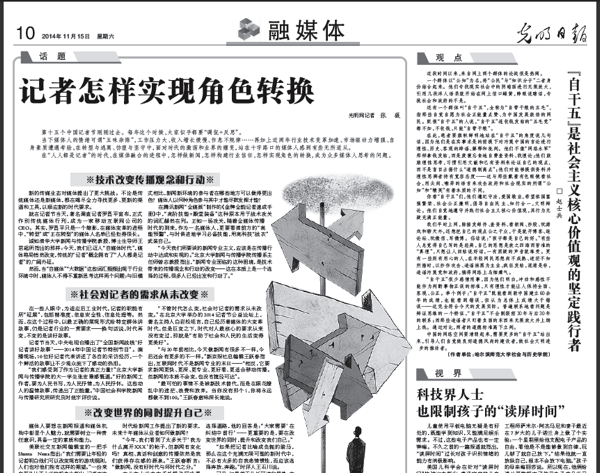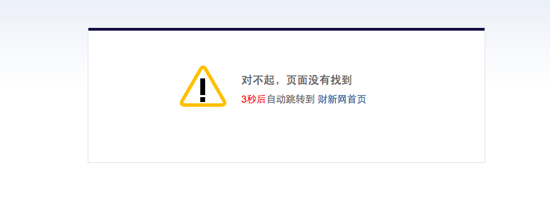One week ago we wrote about the ascendance in China of the propaganda term “positive energy” (正能量) — generally referring to news coverage, online content and cultural products that are uplifting in character, not dwelling on the negative side of Chinese society and politics. A few days later, we translated a report in the official Liaoning Daily attacking what it said was an overwhelming current of negativity about China among university instructors in the country.
Xi Jinping seems to be launching a full frontal attack on negativity. Not just in journalism, on the internet, in arts and culture, and in academia, mind you, but in China’s foreign and trade relations as well. “Positive energy” is a one-size-fits-all prescription targeting both dissent at home and “negativity” towards China in every other context.

At the CCP’s forum on arts and culture in September, President Xi Jinping praised blogger Zhou Xiaoping, known for his fawning praise of all things officially Chinese. “Zhou Xiaoping,” said President Xi, shaking the blogger’s hand, “from here on out you must carry forward positive energy on the internet.” This mirrored what Lu Wei, the Beijing propaganda minister who is now China’s internet czar, said back in January 2013 when he issued a broad call for more “positive energy” on the web — a code for tighter controls in order to quiet dissenting and “negative” voices, like the Big Vs on Weibo Lu went after so aggressively just months later.
When Xi met with former U.S. President Jimmy Carter in 2012, he said that what the US-China relationship needed was more “positive energy.” And he told APEC leaders this month that regional economic cooperation was paramount and “it is hoped that all parties contribute positive energy to APEC’s long-term development.”
The emphasis on “positive energy” is about more than just attitude. It is about expunging dissent and silencing those “negative” voices that dwell on China’s problems.
The recent article in the Liaoning Daily has left some in China fearing that a new round of ideological controls is underway against those who dare to speak up — something akin, though this is so far a vast overstatement, to the anti-rightist campaigns of the 1950s.
Zhang Ming, a professor at Renmin University of China and a former CMP fellow, wrote on Tencent Weibo this weekend: “For some time I’ve heard people talking about how there is a new anti-rightist movement underway. I didn’t buy this at first, but the Liaoning Daily open letter to teachers made me believe. How many on the right will be arrested this time around?”
On Saturday, the Guangming Daily, published by China’s Central Propaganda Department, went so far as to identify a “group” of voices on the internet that it said sought to “slander” China with outright lies laced with quotes (Oh, horror!) from Westerners. An excerpt of the article, on page ten, follows:
In recent times two online groups have been engaged in fierce debate.
One of these groups the “citizen-intellectual” group (公知), combining together the identities of the “citizen” and the “intellectual.” They seek out the dark side of society and magnify them infinitely, then start making irresponsible remarks online while throwing in language from Westerners (洋人) — speaking lies with their eyes wide open . . .
There is another group called the “BYOG 50s” (自干五), “the 50 centers who bring their own grain,” meaning that out of their own will [without government pay] they praise positive energy in society (社会正能量). They are web users who offer encouragement for the development of China.
Those who disparage the “BYOG 50s” say they’re even worse than the “50 Cent Party” (五毛党) who get paid by the government. Not even paid, they have to bring their own food.
Here, I would like to say some things to stand firmly with the “BYOG 50s,” because they, with a factual attitude, carry out rational, historical and objective rumor-denying, explanation and criticism of language that slanders China.
. . . They are tolerant of those who are able to provide materials and offer rational argument — fundamentally unlike those so-called “citizen-intellectuals” and “elites” who view society with coloured glasses and use sharp and mocking language to attack the government and society.

As the Guangming Daily lobbed its attack on “elites” and “intellectuals,” Caixin Online, one of China’s most critical news voices in a media environment increasingly a wasteland of “positive energy,” interviewed Zhan Jiang, a professor of international journalism and communication at Beijing Foreign Languages University and a former CMP fellow, about the contention in Liaoning Daily that university instructors are too negative about China’s social problems.
Tellingly, perhaps, for the disciples of “positive energy” who grind their teeth over how intellectuals tend to quote Western ideas, Zhan threw Jurgen Habermas and John Milton into his Caixin interview.
By mid-day today, the Caixin interview with Zhan Jiang had been removed from the internet in China, yielding only a 404 Error.

And that, folks, is what “positive energy” looks like.
Below is a partial translation of the Caixin piece written from an interview with Zhan Jiang, followed by a few social media posts from Zhang Ming of Renmin University of China.
Zhan Jiang believes that while Liaoning Daily has a right to conduct watchdog journalism on social issues. But the public has an even greater right to fully know the sampling and investigative methods in order to be assured of the conclusions rigor. . .
Zhan Jiang said: “University teachers in the social sciences, humanities and philosophy in particular require a critical mindset in order to do research. If we want to change our society, if we want this society to improve, then first we have to identify our deficiencies and inadequacies.”
Lu Xun is remembered and celebrated as “the backbone of the Chinese people” because of his tough-love attitude, criticising ugly phenomena in China and awakening an awareness of the struggle.
Zhan Jiang disagrees with the accusations in the open letter, that criticisms of the society and nation in Chinese classrooms would lead to erroneous value systems in students just stepping out into the world, making them lose faith in society. University students, he said, are already mature and full of ideas. They are not vulnerable to indoctrination as they were in the closed-off era before economic reform and opening. Information is shared rapidly today, and students can access numerous sources via the internet. They are capable of forming their own opinions about society in the process of receiving various information. The teacher’s opinion is just one point of view. Students are able to think and form opinions on their own. According to John Milton’s theory of a “marketplace of ideas,” differing ideas can form an opinion marketplace where knowledge can emerge from among competing views.
Zhan Jiang pointed out finally that as a media, Liaoning Daily had the credentials to investigate and criticize university teachers. But whether this is done as journalism or social science research, the method of investigation should be rigorous in order to arrive at accurate conclusions. And so he hopes the paper is able to be open about the subject of investigation, it’s sampling methods and its investigation process.
Zhang Ming, of Renmin University, a frequent critic of China’s educational system, kept most of his criticism of the Liaoning Daily “report” on China’s university classrooms to Tencent Weibo. A few of his posts are translated below:
Of those attacking me on Weibo, saying I spread poison through my lectures, none have actually attended my classes. They can’t even utter a word about how I supposedly spread poison. In the same way, instructors who have had their classes suspended for punishment haven’t been presented with any reasons [for their being disciplined]. There are no procedures, there is no public debate, nor are they given any opportunity to defend themselves. Meanwhile, those who don’t take teaching seriously, who don’t know their stuff, who talk total nonsense — they face no consequences. Our universities care only about political correctness.
————-
In fact . . . The greatest problem among university instructors is not criticism of the government but lack of seriousness and expertise in teaching.
————-
In the history of world journalism, has there ever been undercover reporting of university instructors teaching class? Filming and recording in secret? The goal of Liaoning Daily is not to instruct or advise instructors on how to teach, but rather to gather evidence of guilt and hold these instructors to account.
————-
Liaoning Daily has sent reporters undercover to collect materials for [political] smears. This isn’t normal reporting activity but cultural spying. This is essentially turning instructors into the enemy.




















